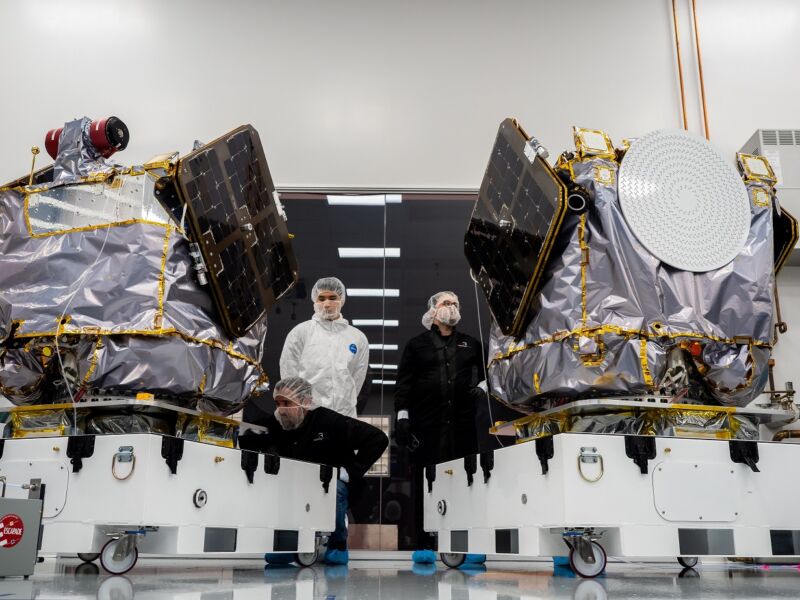Two months ago the team behind NASA's Ingenuity Helicopter released a video reflecting on its historic explorations of Mars, flying 10.5 miles (17.0 kilometers) in 72 different flights over three years. It was the team's way of saying goodbye, according to NASA's video.
And this week, LiveScience reports, Ingenuity answered back:
On April 16, Ingenuity beamed back its final signal to Earth, which included the remaining data it had stored in its memory bank and information about its final flight. Ingenuity mission scientists gathered in a control room at NASA's Jet Propulsion Laboratory (JPL) in California to celebrate and analyze the helicopter's final message, which was received via NASA's Deep Space Network, made up of ground stations located across the globe.
In addition to the remaining data files, Ingenuity sent the team a goodbye message including the names of all the people who worked on the mission. This special message had been sent to Perseverance the day before and relayed to Ingenuity to send home.
The helicopter, which still has power, will now spend the rest of its days collecting data from its final landing spot in Valinor Hills, named after a location in J.R.R. Tolkien's "The Lord of the Rings" books.
The chopper will wake up daily to test its equipment, collect a temperature reading and take a single photo of its surroundings. It will continue to do this until it loses power or fills up its remaining memory space, which could take 20 years. Such a long-term dataset could not only benefit future designs for Martian vehicles but also "provide a long-term perspective on Martian weather patterns and dust movement," researchers wrote in the statement. However, the data will be kept on board the helicopter and not beamed back to Earth, so it must be retrieved by future Martian vehicles or astronauts.
"Whenever humanity revisits Valinor Hills — either with a rover, a new aircraft, or future astronauts — Ingenuity will be waiting with her last gift of data," Teddy Tzanetos, an Ingenuity scientist at JPL, said in the statement.
Thursday NASA's Jet Propulsion Laboratory released another new video tracing the entire route of Ingenuity's expedition over the surface of Mars.
"Ingenuity's success could pave the way for more extensive aerial exploration of Mars down the road," adds Spacae.com:
Mission team members are already working on designs for larger, more capable rotorcraft that could collect a variety of science data on the Red Planet, for example. And Mars isn't the only drone target: In 2028, NASA plans to launch Dragonfly, a $3.3 billion mission to Saturn's huge moon Titan, which hosts lakes, seas and rivers of liquid hydrocarbons on its frigid surface. The 1,000-pound (450 kg) Dragonfly will hop from spot to spot on Titan, characterizing the moon's various environments and assessing its habitability.


Read more of this story at Slashdot.
























